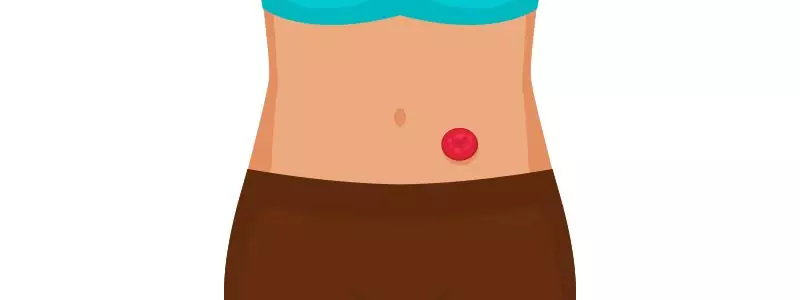Having a stoma may seem daunting at first, but with the right knowledge and support, most people adapt well and continue living a full, active life. With a few simple precautions and guidance from a stoma care nurse, you can manage your stoma confidently. Here’s what you need to know:
Nutrition The first week after surgery is critical as your intestines adapt to the new system. This period is especially important for patients with an ileostomy (small bowel stoma), who may experience significant fluid and electrolyte loss — which can affect the kidneys. To prevent this, staying well-hydrated is essential.
Unless there are specific complications (such as obstruction or prolonged surgery), most patients can begin eating six hours after surgery. Initially, a liquid and soft diet is recommended for the first two days, followed by a gradual return to solid foods if tolerated.
After discharge, your dietary plan should be individualized, but general recommendations include:
Smaller, more frequent meals (5–6 per day) Avoid solid foods for at least 4 hours before bedtime Maintain regular mealtimes to promote stoma function and reduce gas
In the early stages, a low-fiber diet that is rich in protein, vitamins, and minerals is ideal. Avoid gas-producing or high-sugar foods such as dairy, raw fruits and vegetables, and fatty meals. Introduce new foods one at a time and monitor for any digestive issues. Ensure you drink 6–8 glasses of fluid daily.
Watch out for signs of bowel obstruction, which can occur with certain foods like raw fruits (except banana), seeds, celery, popcorn, dried fruits, mushrooms, and cabbage. If symptoms arise, try warm baths, drink warm fluids, or gently massage the stoma area. If the blockage doesn’t resolve or if vomiting and severe pain occur, contact your doctor immediately.
For colostomies (large bowel stomas), fewer dietary restrictions are needed — balanced, regular meals are typically sufficient.
Odor Management Stoma appliances are designed with charcoal filters to manage odor. However, leaks, clogged filters, or improper cleaning can cause unpleasant smells. Deodorizing drops and timely pouch changes help maintain comfort.
Certain foods (cheese, onions, eggs, beans, asparagus) may increase odor. To reduce it, try incorporating yogurt, parsley, cranberry juice, or ayran (a yogurt-based drink) into your diet.
Adjusting Emotionally How you perceive your stoma plays a big role in adapting to life with it. Remember: your stoma is there to protect your health.
Try to take responsibility for your own stoma care, unless there’s a physical or psychological barrier. Stoma products are designed for self-care, and most people adapt within a few weeks. If needed, seek support from your stoma nurse or a mental health counselor.
Physical Activity After surgery, only activities that heavily strain the abdominal muscles (like weightlifting) should be avoided, as they increase the risk of hernias. If your condition allows, start light exercise such as walking, swimming, or guided core strengthening two weeks post-op.
Returning to Work You may return to work after your follow-up visit if your doctor sees no issues. Bring extra stoma supplies and a change of clothes to feel more confident at work. If your job is physically demanding, your care team will advise on suitable adjustments.
Bathing You can shower with or without the stoma pouch. If you have an ileostomy, it’s better to keep the pouch on during bathing. For colostomies, either option is fine. Soap and water won’t damage your stoma or enter it.
Tips:
Avoid scrubbing the stoma Change your pouch after bathing Do not use oily creams around the stoma Dry the skin thoroughly before reapplying the pouch Bathe when your stoma is least active
Clothing You don’t need to change your style — just avoid tight belts or clothing that may press against or injure the stoma.
Travel and Holidays Travel is absolutely possible once you feel well and can manage your care. For air travel, avoid carbonated foods and drinks to minimize gas buildup, and empty your pouch before flying.
Sexuality Stoma does not prevent a healthy sexual life. While you may experience some discomfort or fatigue after surgery, these are temporary. Open communication with your partner and healthcare team helps maintain intimacy and emotional well-being.
Pregnancy Having a stoma does not prevent pregnancy, but you should consult your doctor if planning to conceive. Adhesions or prior treatments may require special consideration. During pregnancy, stoma shape and size may change, so different products might be needed. Care can be done with help or in front of a mirror if visibility becomes difficult.
Medications Always inform your doctor or pharmacist that you have a stoma. Some medications may not be fully absorbed, especially with an ileostomy. For example, birth control pills may need dosage adjustments.
Religious Practices According to the Turkish Directorate of Religious Affairs, having a stoma does not prevent religious rituals such as prayer or ablution. Stool or gas in the pouch does not invalidate your worship. After daily hygiene, you can perform religious duties as usual.
Fasting is possible, but consult your doctor beforehand, especially to avoid dehydration and other health risks.



